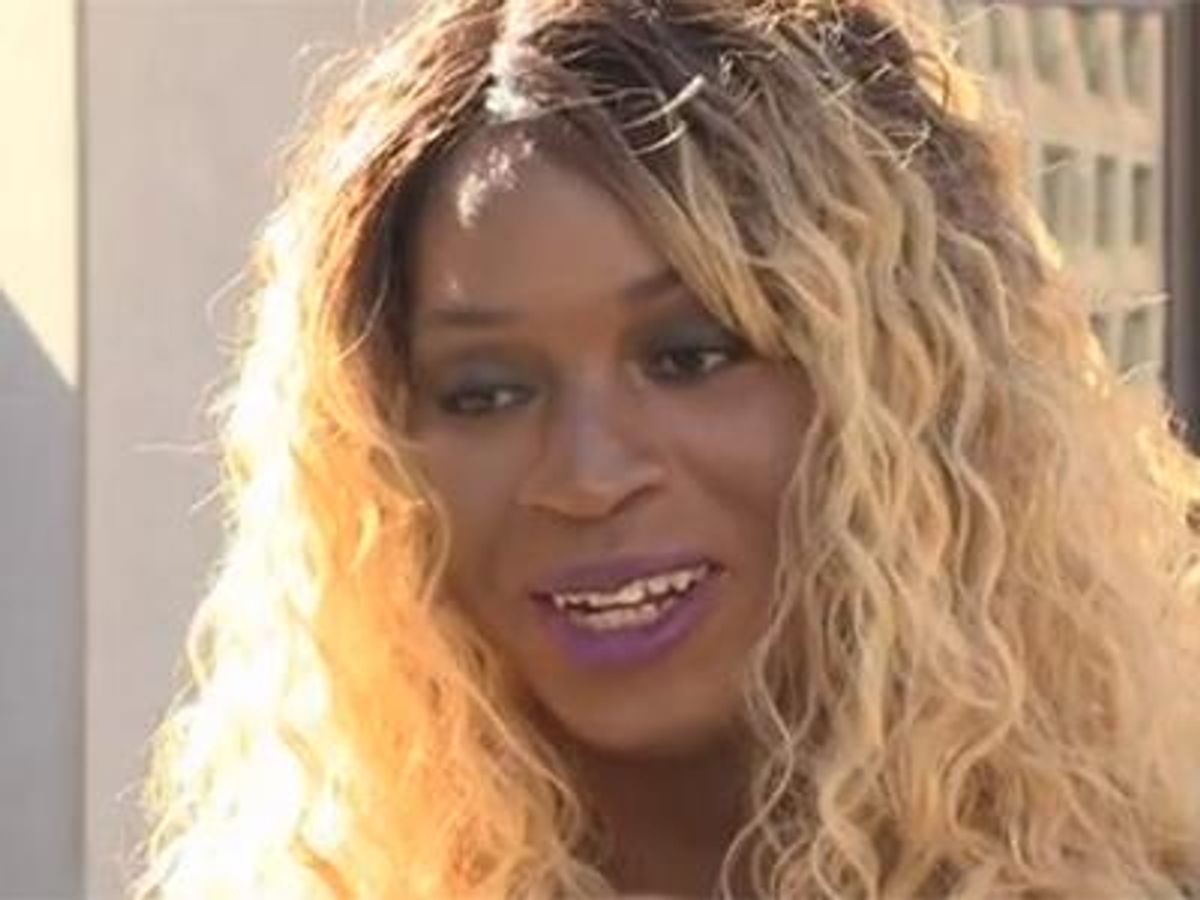Attorneys for sex workers' rights activist Monica Jones are scheduled to argue in court Monday that the Phoenix antiprostitution ordinance under which Jones was convicted is unconstitutionally vague and infringes on free-speech rights, reports the Associated Press.
In April, Jones was found guilty of "manifesting prostitution" after she accepted a ride from an undercover Phoenix police officer during a May 2013 antiprostitution sting. She was sentenced to 30 days in jail. Her attorneys are seeking to have Jones's conviction overturned and the antiprostitution statute struck down.
The fact that Jones, a 29-year-old black trans woman who attends Arizona State University and volunteers with the Sex Workers Outreach Project, is not herself a sex worker led many advocates to declare that the true "crime" she was convicted of was "walking while trans."
The phrase evokes a national trend in which law enforcement criminalizes trans women -- especially women of color -- for simply daring to be themselves in public.
"'Walking while trans' is a saying we use in the trans community to refer to the excessive harassment and targeting that we as trans people experience on a daily basis," Jones explained in a statement at the time she was convicted. "'Walking while trans' is a way to talk about the overlapping biases against trans people -- trans women specifically -- and against sex workers. It's a known experience in our community of being routinely and regularly harassed and facing the threat of violence or arrest because we are trans and therefore often assumed to be sex workers."
On the day Jones was arrested, officials allege that she was engaging in behavior that's illegal in Phoenix: repeatedly engaging passersby in conversation while walking down the street. According to city law, such an act -- as well as waving at cars in an attempt to stop them, asking someone if they are a police officer, or attempting to touch someone's genitals -- is an indication that one intends to sell sex, or "manifest prostitution."
Other reports contend that Jones was convicted because she "exposed herself" to an undercover police officer then asked if he was a cop. Jones addressed this allegation with local TV station KTVK in the video below, saying "I'm very flirty. I flirt with everyone. ... This law makes asking someone if they're a cop a crime. You can only imagine who else can be targeted by this."
"The law bans pure speech," added Jones's attorney, Jean-Jacques Cabou. "It makes it a crime simply to say certain things to certain people. The cop on the street doesn't get to pick what's illegal and what isn't. They have to be bounded by firm, clear laws that are, in constitutional terms, not vague."
When Jones's case made national headlines in April, she received support from the American Civil Liberties Union and from actress Laverne Cox, among many others. The ACLU also condemned the statute's vagueness, which it contends encourages arresting officers to engage in profiling -- which in effect disproportionately impacts trans women of color like Jones.
In illustration of the law's ambiguity, the ACLU noted that talking to passersby could easily be indicative of being lost and seeking directions, or working for a political canvassing organization.
It may take several weeks for the judge in Jones's case to make a ruling.
Watch KTVK's November interview with Jones below.


















































































